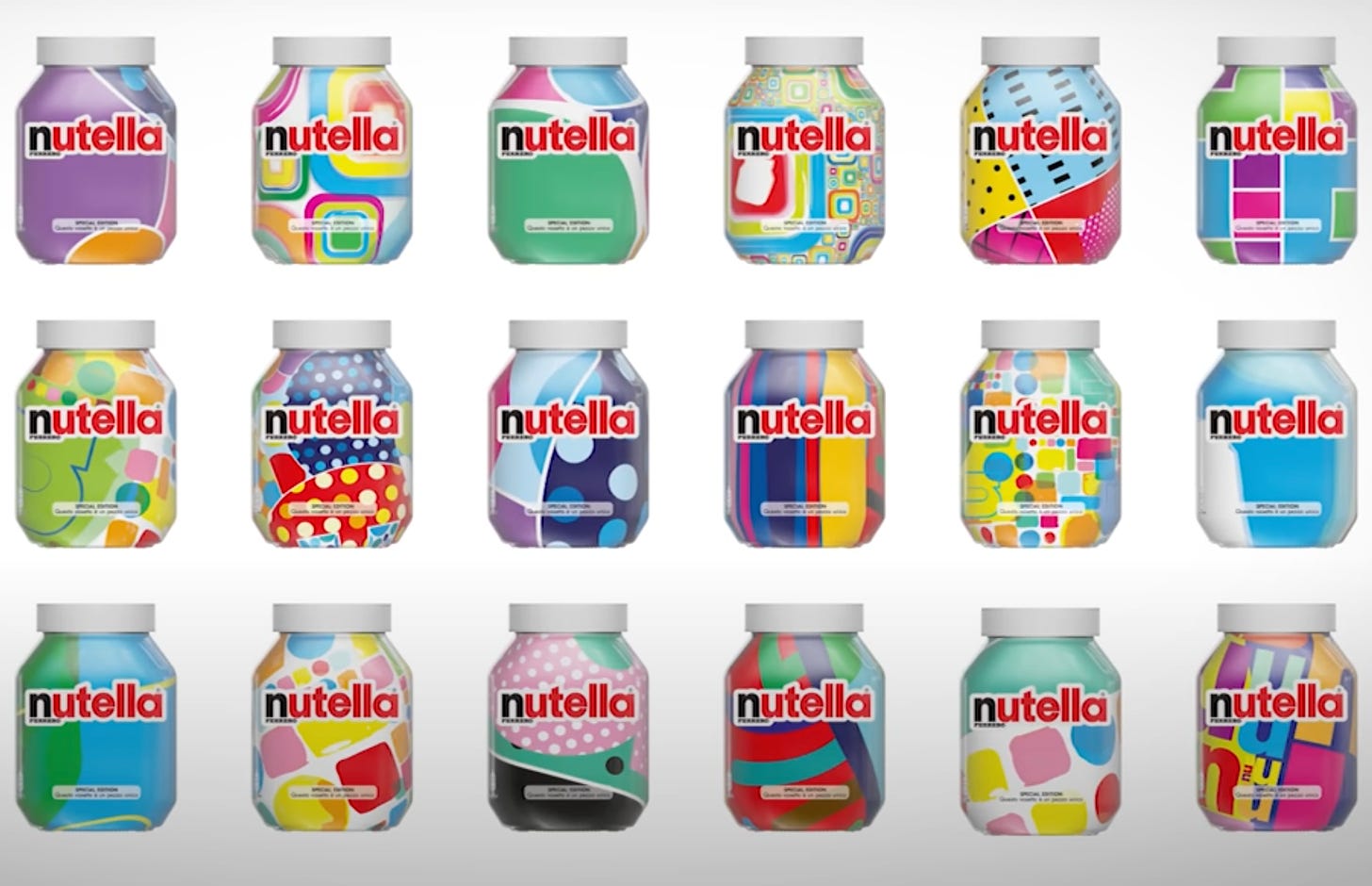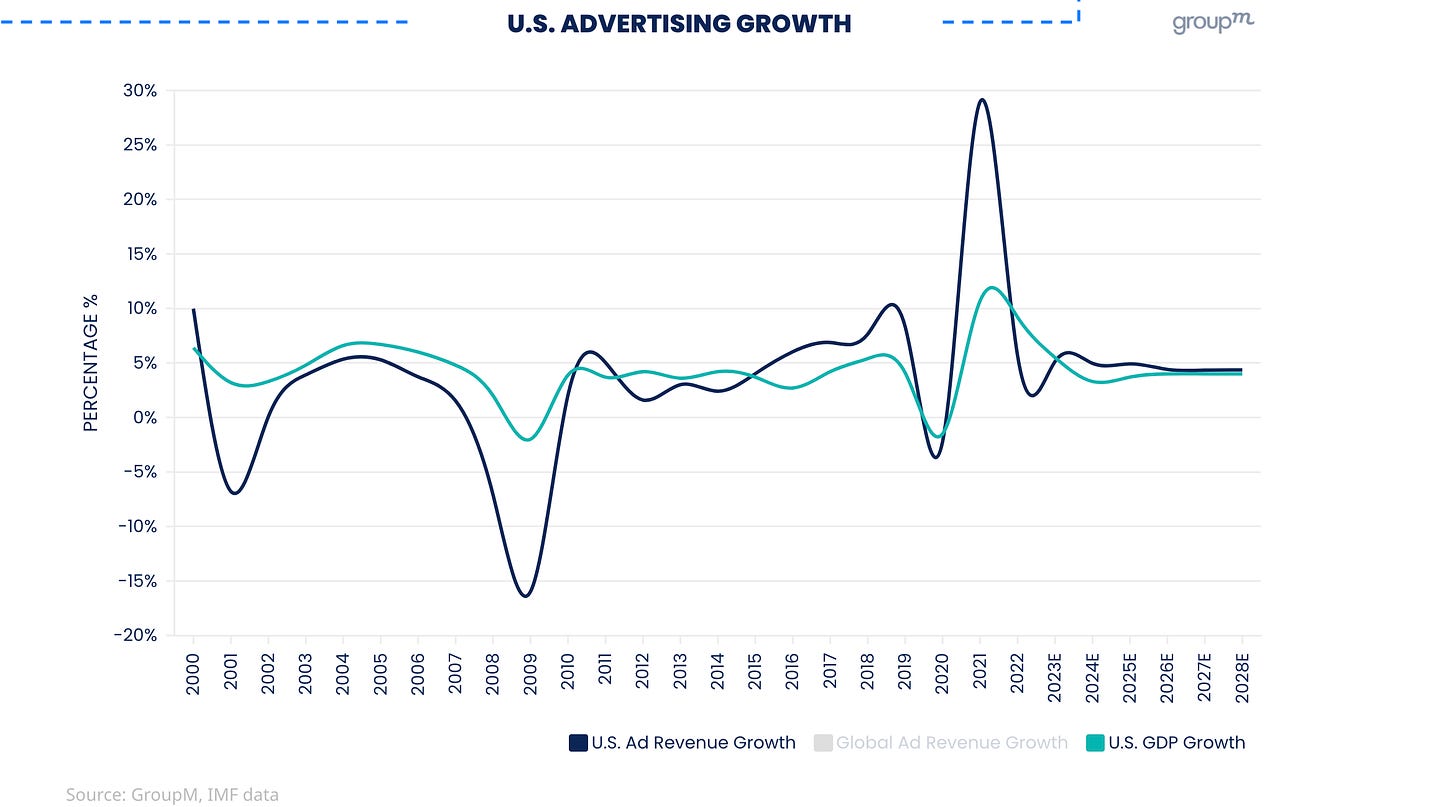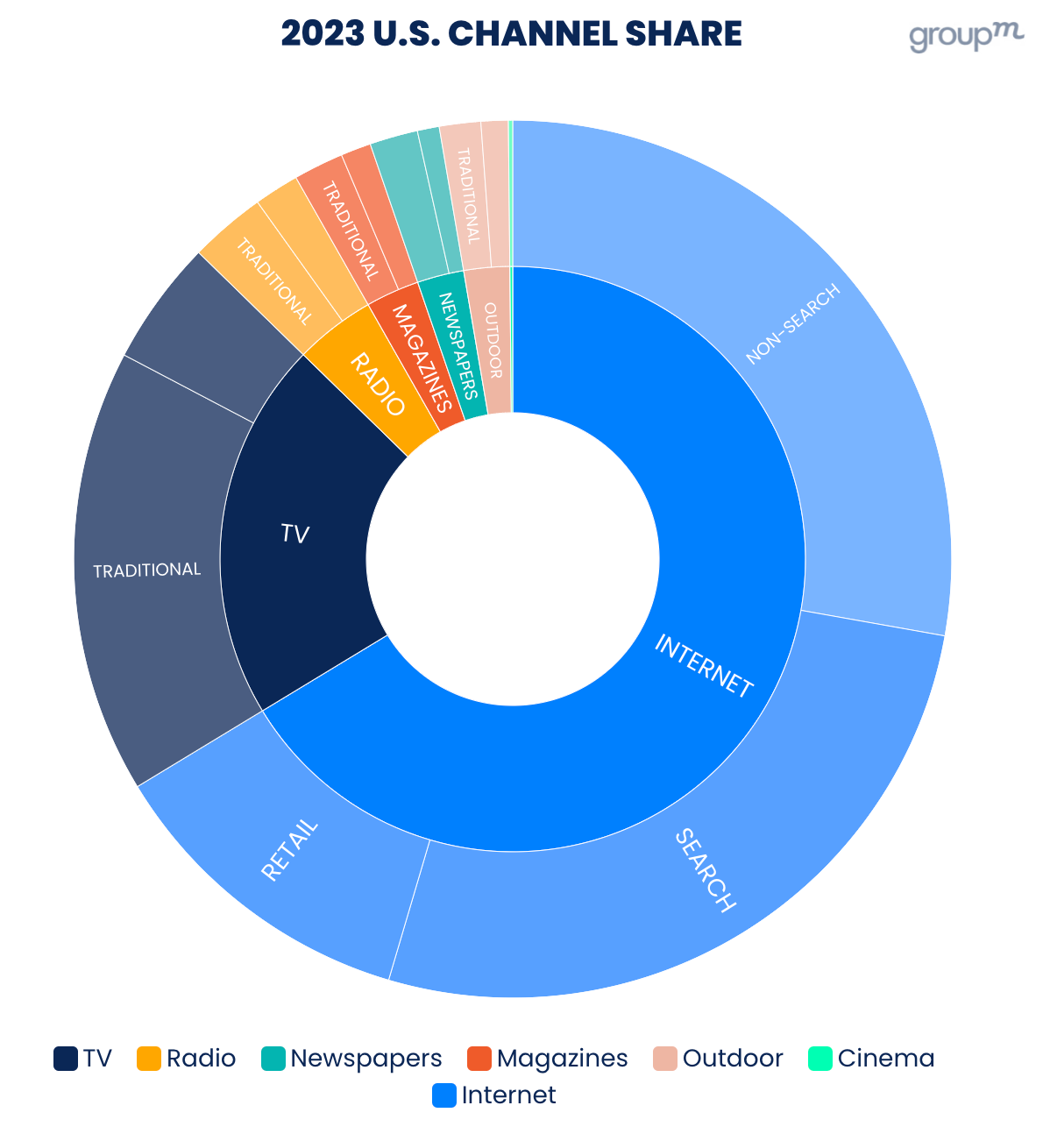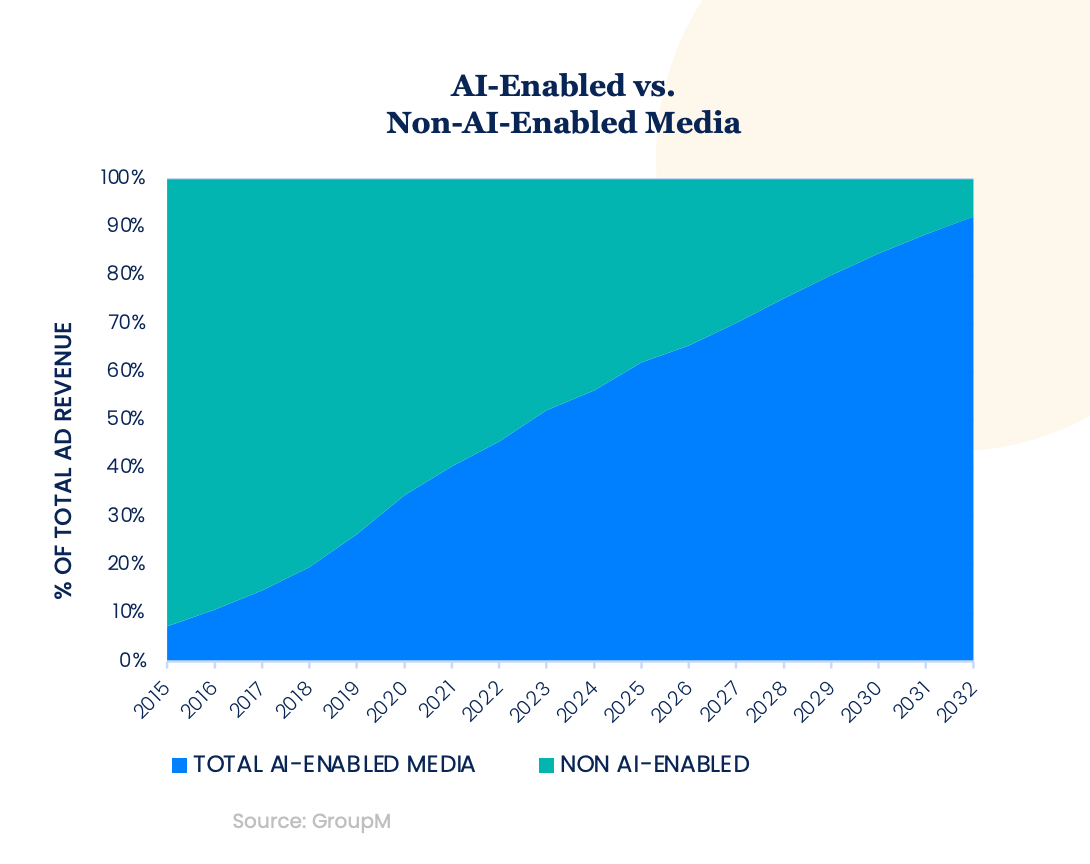Please note: The insights presented in this article are derived from confidential consultations our team has conducted with clients across private equity, hedge funds, startups, and investment banks, facilitated through specialized expert networks. Due to our agreements with these networks, we cannot reveal specific names or delve into detailed topics from these discussions. Therefore, we offer a summarized version of these insights, ensuring valuable content while upholding our confidentiality commitments.
Recently, our conversations with clients have taken a thrilling turn as we dive deep into the world of AI and its impact on advertising. Clients are trying to get answers about how generative AI is reshaping the entire process of creating and experimenting with ads. In this article, we will talk about:
2032 Forecast on AI vs non-AI Media
Effects of AI on Publishers
Effects of AI on Direct-to-Consumer (DTC) Advertisers
Google and Facebook’s AI Ads
Before we dive into topic, let's break down common advertise industry terms:
1. Publishers: Publishers are entities or individuals that produce and distribute content. They're called 'publishers' because they 'publish' content for audiences. Some Examples,
News Organizations: BBC, CNN, The New York Times.
Bloggers or Video Creators: Independent individuals or groups writing / video on specific topics
2. Advertisers: Advertisers are entities or individuals that pay to promote their products, services, or ideas. They create ads with the aim of reaching potential customers and persuading them to take a certain action. Examples,
Brands: Nutella promoting a new product, Nike promoting a new line of shoes, Apple advertising the latest iPhone.
Service Providers: Netflix, a local gym promoting its membership.
3. Role of Google or Meta: Google's primary service, where users can search for information. Publishers often optimize their content to appear in Google search results. Meta’s Facebook provides a platform of rich social data.
Now we know these players, what are the key Differences:
Publishers produce and distribute content, seeking to engage audiences.
Advertisers promote products, services, or ideas, seeking to persuade audiences.
Google or Meta acts as a bridge between the two, providing platforms for publishers to reach audiences and for advertisers to promote their offerings. Google offers tools for both publishers (like Google AdSense) and advertisers (like Google Ads) to achieve their respective goals.
US Advertising market and Forecast on AI vs non-AI split
Per IMF data, U.S. advertising in 2023 will total $322.5 billion (ex-U.S. political advertising). Given all financial challenges, a pessimistic outlook for 2023 advertising revenue would be perfectly reasonable. And analysts forecast for the year, growth of 5.1%, is just behind the expected nominal growth of U.S. gross domestic product (GDP), which the IMF estimates at 6.1% in 2023.
Now, if you wonder the advertisement channels (Digital, TV, Radio etc.) and their forecast, Here are some highlights:
Digital ad revenue will represent two-thirds of total revenue at $213.9 billion in 2023
Retail media revenue in 2023 will represent 12.1% of total advertising (excluding political and direct mail).
Connected TV is forecast to grow 7.2% in 2023 before returning to double-digit growth in 2024. For the full year 2023, analyst expect TV to decline 9.0%, following a 10.4% increase in 2022.
Print, including newspapers and magazines, continues its decline. In 2023, we now project that print revenue will decline 8.6%
Direct mail maintains a share similar to Audio (4.3% in 2023), although forecast to continue low-to-mid-single-digit declines over the next five years.
2032 Forecast
GroupM published this report that says, AI-enabled marketing already accounts for more than $370 billion of global advertising revenue, or roughly 45% of all advertising. And its growth will only continue. Now, let's fast forward a decade.
In 10 years, By 2032, AI-enabled advertising could account for $1.3 trillion in advertising revenue, more than 90% of the total.
Wow!!
That means this AI bots will become so smart that it can personalize almost anything and everything!
But what does this mean for you and me?
What about publishers? and Advertisers?
How will publishers maintain relevancy in a AI generated content environment?
And what is the role of ad blockers in all of this?
Let’s talk about this.
Effects of AI on Publishers
Consider this perspective. Some clients have seen decline in web traffic because if users obtain answers directly within a conversational chat, without being redirected to a publisher's website, it could lead to a notable reduction in direct website traffic. This scenario could adversely affect ad revenues for publishers who depend on page views and site visits. Let’s look at the example of declining ad revenue.






